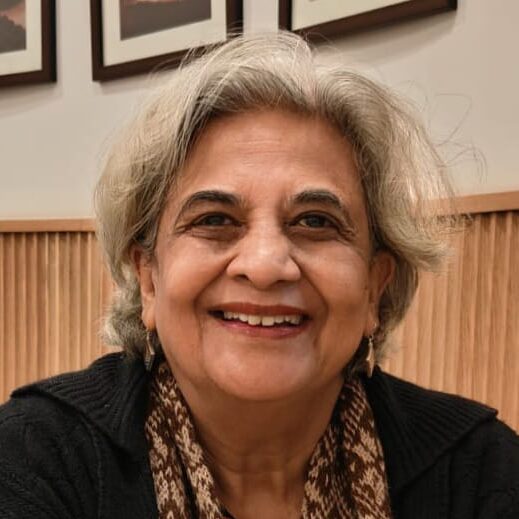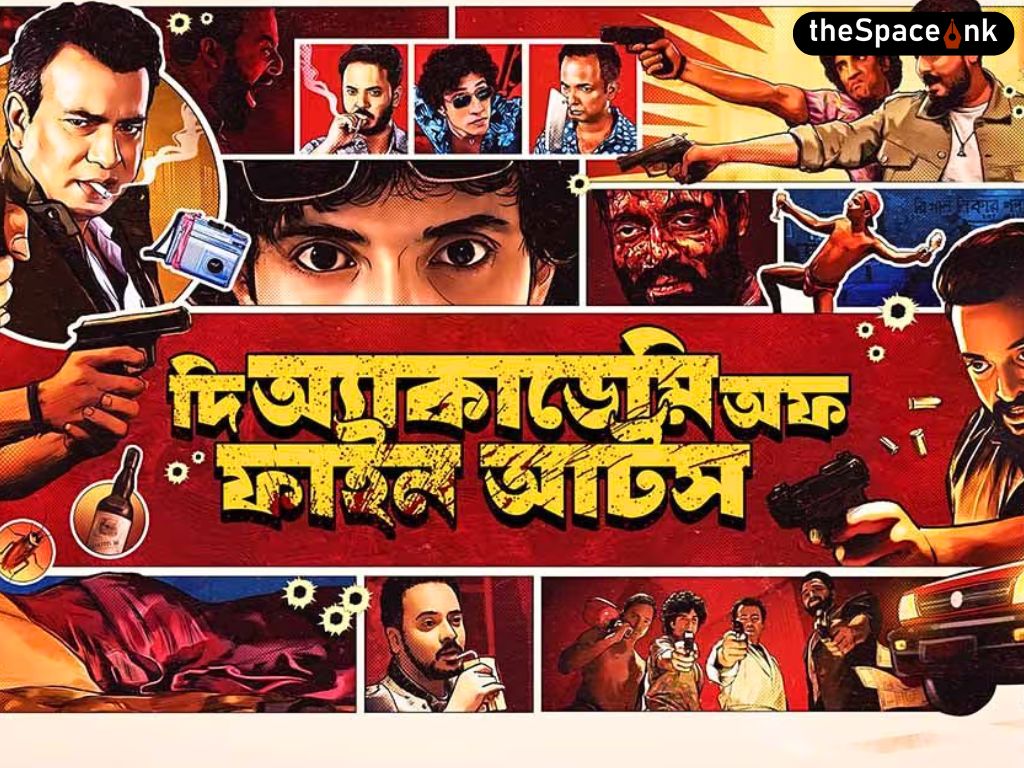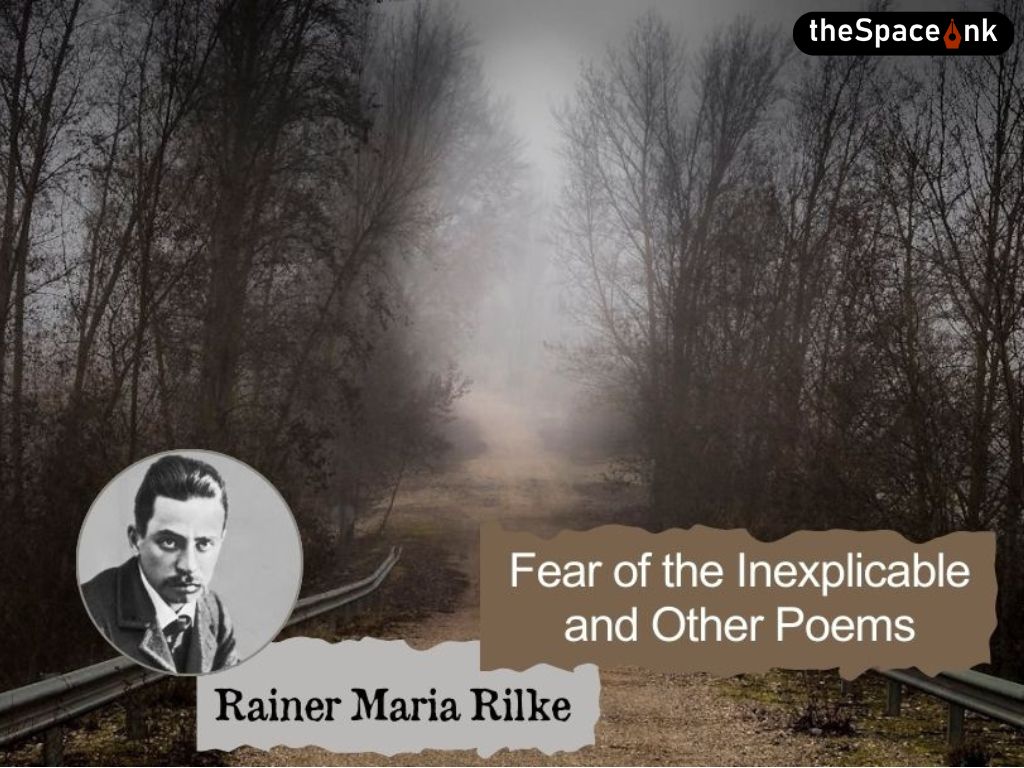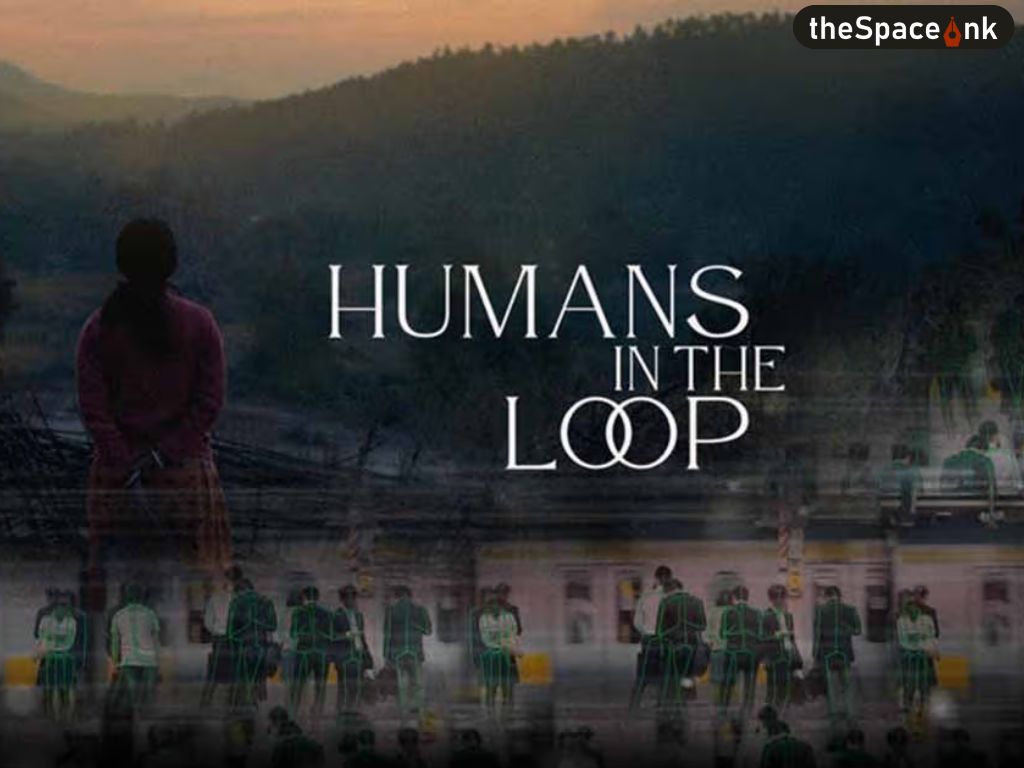(KIFF)
A wrap-up of the recently concluded 31st Kolkata International Film Festival that celebrated Franz to Sholay and many other films in between
“Kafka is not blind but he keeps bumping into things, people, furniture as if he does not see them,” says his friend on camera like others too in the biopic Franz directed by the Polish woman filmmaker Agnieszka Holland. This new film is being premiered at major festival circuits and Kolkata was lucky to be included. A masterpiece, which is raw and crushing according to critics,brought the curtains down on the 31st Kolkata International Film Festival. (KIFF)
Also Read: The Great Indian Proposal Letter
The Kafkesque reality is far from over in this cruel world of ours. After Kafka threw the keys away, played to perfection by the German actor Idan Weiss in the film.
What is interesting is that the director juxtapositoned the modern day commodification of the Czech writer with everything he didn’t want to be; someone who loved and also could not love the ways others can. It is said Kafka locked his work and threw away the keys!
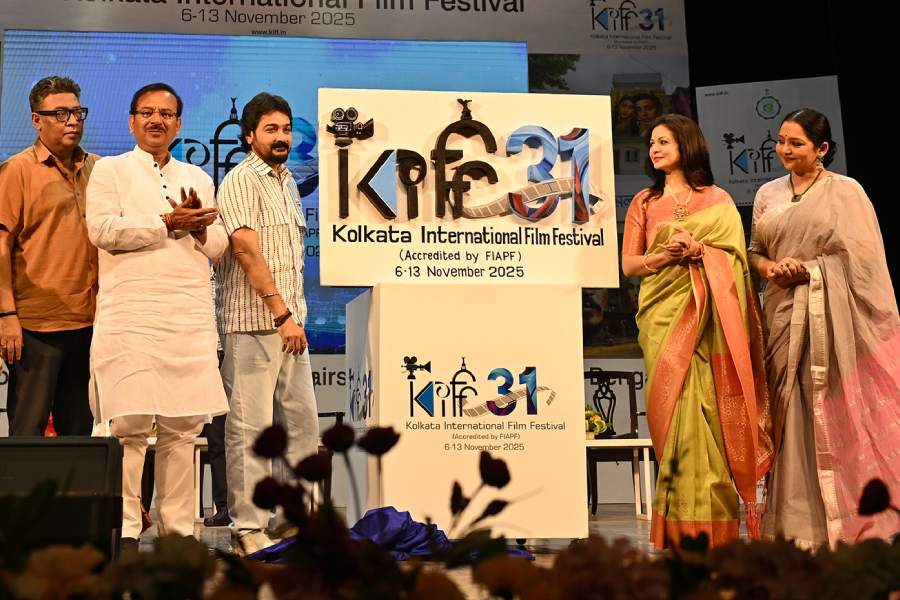
A film festival becomes more dynamic when various tributes are paid due to certain milestones and this year there was a rich haul of the old and the new. Starting with Bengal’s very own maverick filmmaker Ritwik Ghatak whose birth centenary falls this year to Sholay made 50 years ago. This is one iconic Bollywood film that rewrote some rules in uniting a vast majority of film lovers in the country. The defining moment was the Satyajit Ray Memorial Lecture delivered by Ramesh Sippy, the director of Sholay, who dwelt on the craft of film making and emphasized that cinema in spite of various threats would live on. (KIFF)
On being asked if he would like to direct a sequel to Sholay, Sippy’s answer was that the first one’s popularity is still unabated so why repeat the act? Yes, let the famous line– “Oye Kalia kitne aadmi the” – continue to be forever etched in our minds.
“Richard Burton and Claudia Cardinale the Italian actress – all three celebrating their centenaries. Do Bigha Zamin was screened due to the music by Salil Choudhury, another centurion if the term can be loosely used.”
There were other tributes. Santosh Dutta or Satyajit Ray’s Jatayu was in for special mention with the screening of Ray’s Joy Baba Felunath as were for
Richard Burton and Claudia Cardinale the Italian actress – all three celebrating their centenaries. Do Bigha Zamin was screened due to the music by Salil Choudhury, another centurion if the term can be loosely used. (KIFF).
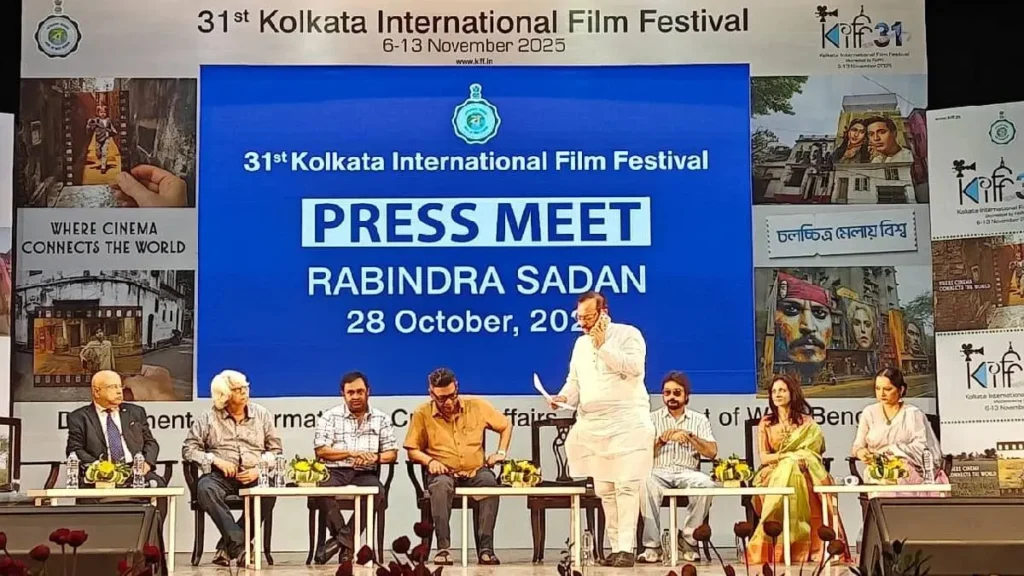
Celluloid is nothing but the depiction of life with its joys and sorrows in motion. The love affair that cinema enjoys with literature, art and history often results in a perfect match which makes it a complete experience for those who simply love the romance of the dark theatre hall. (KIFF)
Scriptwriting is a genre of writing and most films owe their success to not just the story or cast or production values but a great script in the hands of an able director. Therefore, an old classic like Who’s Afraid of Virginia Woolf? the famous play by Edward Albee, the screenplay for which Ernest Lehman received an Oscar nomination, drew heavy crowds with an older generation braving the crowds. Directed by Mike Nichols and acted by Burton and Elizabeth Taylor both of whom played the volatile married couple; perhaps so well because of their own life experience, this film was a thoughtful inclusion. (KIFF)
Also Read: Keeping Emergency Memories Alive
Cladia Cardinale likened to another Italian actress Sophia Loren was celebrated through the spaghetti western Italian style made by Sergio Leone in Once Upon a Time in the West. Pat Garrett & Billy the Kid and The Wild Bunch by David Samuel Peckinpah were screened to commemorate this American director’s centenary as well. (KIFF)

The theme of Beyond Borders came with its share of films on migration and displacement – an increasing reality due to various factors that is only made worse by the hate faced by refugees in the countries they are forced to travel to and do jobs that the natives will not. It is not just the forced migration to the “imperial” west that we are dealing with here, but also the animosity towards immigrants. What is often overlooked in India is the migration issue between the Islamic and African countries that do not handle outsiders too well either. Films, therefore, help to widen the scope of understanding and discussions. (KIFF)
In Aisha Can’t Fly Away by Egyptian director Morad Mostafa sensitively portrays a 26-year-old Sudanese caregiver Aisha in a neighborhood in Cairo. Stuck between an undefined relationship with a young Egyptian cook, she witnesses the unethical deals that her fellow African migrants have to strike for their mere survival and safety. (KIFF)
“It was heartening to note a large number of entries from the North-East and Assam which puts KIFF’s heart in the right place.”
A Film Festival generates considerable heat through seminars and talks so the presence of veterans like Adoor Gopalakrishnan, and a serious student of Ritwik style of filmmaking Anup Singh of Ekti Nadir Naam and Qissa fame talking on the various facets of cinema enlivened the interactive sessions. (KIFF)
It was heartening to note a large number of entries from the North-East and Assam which puts KIFF’s heart in the right place.

Lastly Pradipta Bhattachary’s Nadharer Bhela (The Slowman and his Boat) did not win the much coveted Golden Tiger award but the SRFTII professor of films won hearts with this Ritwik Chakraborty and Amit Saha starred film that reflects on slowness and stillness in a fast-paced world we live in. (KIFF)
The top honours went to a Cuban documentary film To the West, in Zapata (Al Oeste, en Zapata), directed by David Bim, about a family’s survival in the challenging Zapata Swamp, infested with crocodiles, during the pandemic. (KIFF)
Also Read: “A woman has to find her own path”
But the non-competitive section always remains a big draw for the avid lovers of cinema who thronged the venues – Nandan, Rabindra Okakura Bhavan and some noted theatre halls throughout the week – November 6-13. The unique part of the festival is when viewers travelled from the suburbs to queue up to watch a new film La Grazia (The Pardon) by the Italian director Paulo Sorrentino and an old classic The Saragossa Manuscript directed by another Polish director Wojciech Has,in 1965. (KIFF)
Poland was in focus and a few notable mentions may have fallen through a few cracks in this writing but overall the Festival was well-curated in terms of world class cinema, made easier because of centenary tributes and provided a platform for budding filmmakers. (KIFF)
Photo Courtesy: Get Bengal, Asian Film Festivals, Aajkaal, Telegraph
For a living, Manjira Majumdar has traversed the world of reporting, feature writing and editing. Today an independent journalist, she likes writing essays, fiction and translating from Bengali to English.




